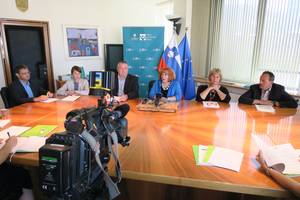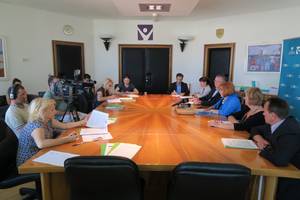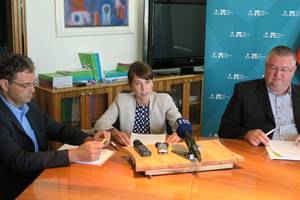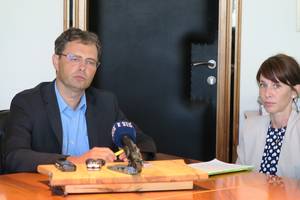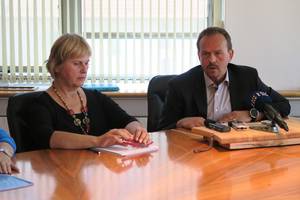At a press conference on the premises of the Human Rights Ombudsman of the Republic of Slovenia (Ombudsman) on Thursday, 21 June 2018, Ombudsman Vlasta Nusdorfer, her deputy and head of the National Preventive Mechanism (NPM) Ivan Šelih and advisers of the Ombudsman presented the Report on the implementation of the tasks of the NPM in 2017.
The Ombudsman began by emphasising the importance of the NPM's preventive care for people whose freedom of movement is restricted, and also noted the support for victims of torture, which is marked on 26 June as an international day. She expressed satisfaction that in the ten years of its operation, the work of the NPM has become recognised and its recommendations largely taken into account, which has contributed to improving the conditions and treatment of persons deprived of liberty.
Deputy Šelih warned that the greatest problem remains in the field of care for vulnerable groups deprived of freedom of movement or for whom this freedom was restricted. He said that the situation was improving, but too slowly. We are still waiting for the long-promised special pedopsychiatric department for children, and there are also no concrete measures concerning the placement of people with mental health problems in special social protection institutions, as the Ombudsman has repeatedly publicly warned, also with a special report.
Due to the increasing number of adolescents with mental health problems and associated violent behaviour, there are pressing conditions in educational institutions, where the situation is overtaking outdated norms and worn-out housing conditions, of which the Ombudsman and the NPM have warned the Ministry of Education, Science and Sport. However, an inter-ministerial working group has been established, of which the Ombudsman is a member, which prepares the legal foundations for the comprehensive and uniform treatment of adolescents in these institutions (sound statement (MP3)).
There is also an increasing number of elderly detainees and prisoners in prisons who are not accommodated in suitable premises. The NPM has also prepared a thematic report on this (more details here). Regarding the treatment of foreigners, the deputy pointed out the treatment of minors, in particular those who are unaccompanied.
In 2017, the NPM cooperated with 8 non-governmental and humanitarian organisations, and visited 80 places where people are deprived of liberty, mostly unannounced. In 18 thematic visits, NPM members examined the accommodation of people with mental health problems in special social protection institutions (and published a special report abut that) as well as care for vulnerable persons who are imprisoned (and published thematic report). They made a total of 615 recommendations, of which 245 have already been implemented, 204 accepted, and 55 not accepted.
The details of the individual areas covered in the report were also presented by the advisers to the Ombudsman, Ana Polutnik, Mag. Jure Markič, Lili Jazbec and Robert Gačnik, spec.
The NPM contributes to improvements; in some areas, recommendations are implemented too slowly
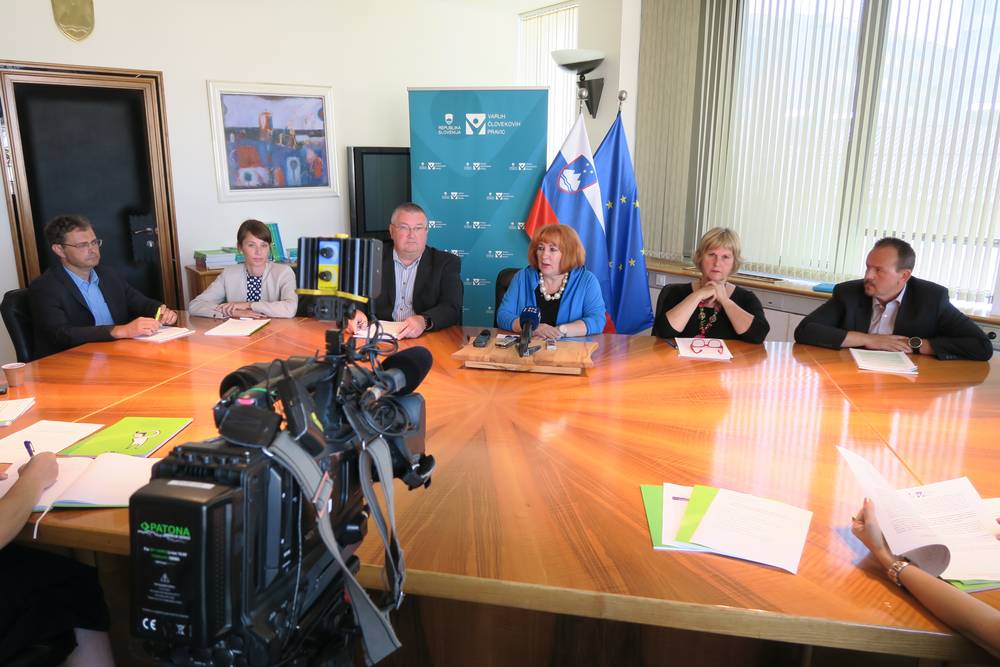
Photo gallery
(5)
